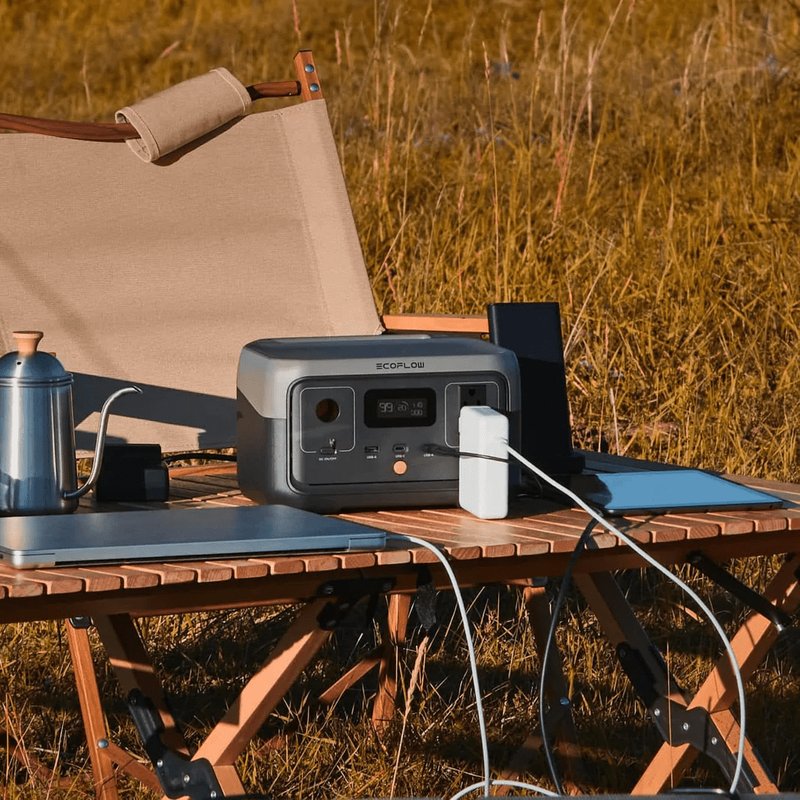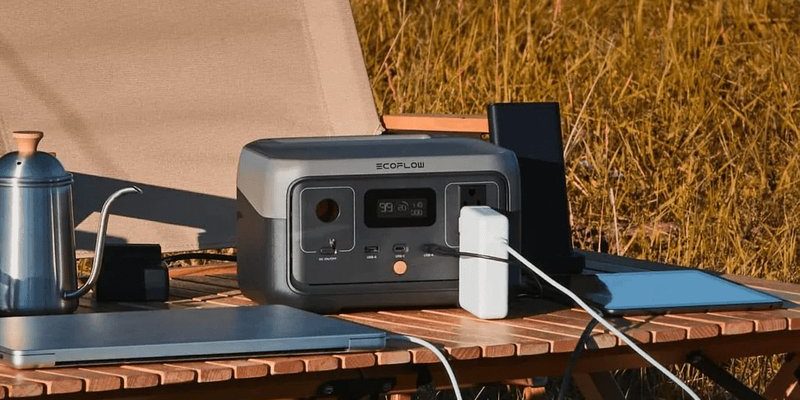
In this article, we’ll break down the differences between power stations and traditional generators. Grab a cup of coffee as we dive into what works best in your neck of the woods. We’ll explore how you can harness these devices to keep your home powered up during unexpected outages or even while camping in the great outdoors.
Understanding Power Stations
Let’s start with the basics—what exactly is a power station? Think of it as a battery on steroids. While traditional generators typically run on gasoline or propane, a power station operates using rechargeable batteries. This makes them a cleaner, quieter option. You can plug in your devices and appliances, and they’ll draw power directly from the stored battery—no noise, no fumes.
One of the appealing features of power stations is their portability. Compact and often lightweight, you can easily move them around your home or take them on an adventure. If you decide to hit the beach or go tailgating, bringing along a power station means you can charge your phones, run a small fridge, or even power a blender for smoothies.
But, there’s a catch. Power stations usually have a limit on how much power they can provide at once, known as the output wattage. This means you’ll want to know what devices you plan to use and ensure your power station can handle them.
What About Traditional Generators?
Now, let’s talk about traditional generators. These machines are the heavyweights in the power supply arena. They come in various sizes, but most are designed to provide a large amount of power for extended periods. Think of a generator as your big, brawny friend who can lift heavy stuff for you.
Generators usually run on gasoline, propane, or diesel. You simply fill them up with fuel, pull the cord, and voilà—you’ve got power. However, they come with disadvantages: they’re often noisy, can be dangerous if not used properly, and require regular maintenance. Plus, using a generator indoors is a definite no-no because of the carbon monoxide risk.
If you need to run many devices simultaneously or keep your home powered for days during severe outages, a traditional generator might be the right choice. But if you’re looking for something cleaner and easier to use, let’s see how a power station stacks up.
The Differences: Power Station vs. Generator
When weighing the options of a power station versus a generator, it boils down to a few key differences.
- Noise Level: Power stations operate almost silently. In contrast, traditional generators can be quite loud, which might disturb your neighbors.
- Emissions: Power stations are environmentally friendly since they don’t emit harmful gases like carbon monoxide. Generators can be dangerous if not used outdoors.
- Portability: Power stations are usually lighter and more compact, making them easy to transport. Generators, on the other hand, can be bulky and heavy.
- Fuel Requirements: Power stations run on batteries that you recharge, while generators require fuel, which can be an additional hassle.
- Power Output: Traditional generators typically provide higher wattage, making them suitable for running multiple heavy devices simultaneously.
Each device has its unique strengths and weaknesses, so the right choice really depends on your needs.
Use Cases for Power Stations in 96801
Living in Zip Code 96801, you might be wondering how a power station fits into your lifestyle. Are you a weekend warrior who enjoys camping? Or maybe you’re someone who likes to host backyard parties? A power station is excellent in all these scenarios.
For outdoor enthusiasts, a power station can easily charge your devices while you explore the beauty of Hawaii. It’s perfect for keeping a portable cooler running or charging your camera. Just imagine taking a sunset picture while knowing your power station is keeping your gadgets alive.
If you experience frequent short power cuts, a power station can provide just enough backup power for essential items like your fridge, Wi-Fi router, or lights. Instead of dealing with the noise and maintenance of a generator, you can grab your power station, plug in what you need, and go about your evening.
Limitations of Power Stations
While power stations come with benefits, there are some limitations to be aware of. First, they generally have a lower power output than traditional generators, meaning they can’t run high-wattage appliances like air conditioners or electric heaters.
Another thing to consider is battery life. Depending on the size and usage, you might find that larger devices drain your power station’s battery quickly. It’s like eating your favorite dessert—you can only indulge in so much before it runs out!
Lastly, charging time can vary. Most power stations can be charged using a wall outlet, solar panels, or car outlets. However, it usually takes several hours to fully recharge, so planning ahead is essential to avoid running out of juice when you need it most.
Cost Considerations
Cost is another important factor when deciding between a power station and a traditional generator. Generally, power stations tend to have a higher upfront cost compared to smaller generators. However, when you factor in ongoing fuel costs, maintenance, and potential safety concerns, power stations might save you money in the long run.
For example, a quality power station can range from around $300 to over $1,000, depending on the brand and capacity. In contrast, traditional generators can start from around $500, but prices can quickly climb into the thousands for more powerful models. Consider how often you’ll use the device and what you’ll need it for to find the best value for your budget.
Final Thoughts: Which One Is Right for You?
In conclusion, deciding whether you can use a power station instead of a generator largely depends on your power needs and lifestyle in Zip Code 96801. If you’re looking for something portable, quiet, and environmentally friendly, a power station might be the perfect choice for you. On the other hand, if you often find yourself in need of a heavy-duty power solution during extended outages, a traditional generator could be your better bet.
Ultimately, it’s essential to assess your specific power requirements, the devices you need to run, and how often you expect to use the power source. Whatever you choose, both options can provide a reliable backup to keep your home powered and comfortable when the unexpected happens.
